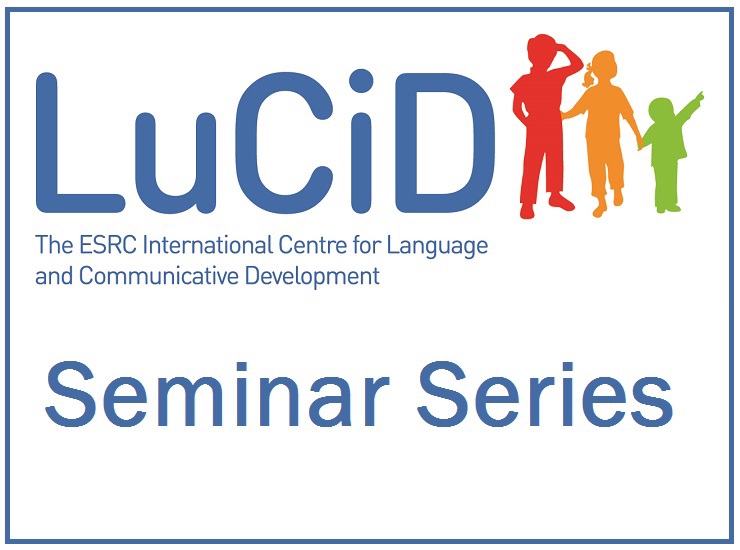
Dr Perrine Brusini (University of Liverpool) will give the next LuCiD Seminar on on the In(put) and Out(put) of Syntactic Acquisition. The seminar will take place from 11 -12.30 on Tuesday 6th November at the University of Manchester.
Abstract
The impressive productivity in language is primarily due to syntax, a set of processes that allows listeners to decode the relationship among words in a sentence. Yet we fail to understand how and when language learners use syntactic processing. A difficulty when studying syntax is the confound that exists between the relative frequency of word strings (pairs, triplets, .., n-grams) and the grammatical legality of a sentence. However, a frequency of zero does not necessarily imply that a sentence is ungrammatical. It is precisely because syntax is more complex than frequency analysis that humans can interpret sentences they have never heard before. In addition, mastering syntax requires to be able to abstract a word to grammatical categories (dog and cat are both Nouns, while eat and drink are Verbs). All of those are difficult to directly test with toddlers. To solve this issue we can use electroencephalography, a brain imaging technique that allow to investigate brain computation while infants are passively listening.
In this talk, I will present the results of three experiments aiming to unfold the acquisition of syntax in infants. We will start to assess when toddlers can do a genuine syntactic process by using EEG. The second experiment will aim to find a method of learning of syntax, and explain the result of the first study. This second study is more of a feasibility experiment using a computational model. Finally, we will review if one of the hypothesis used in the initialization of the model is verified and go back to experimentation with infants using EEG.
Where: Room G54, Chemistry Building, University of Manchester. (Building 61 on the campus map)
When: 11-12.30, Tuesday 6th November 2018
